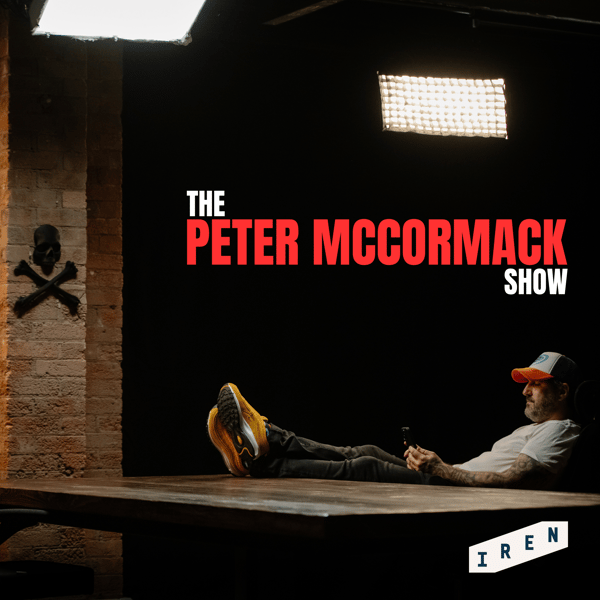How the Federal Reserve Works with Joseph Wang - WBD720
Mr Obnoxious
Peter McCormack
4.8 • 2.7K Ratings
🗓️ 9 October 2023
⏱️ 69 minutes
🧾️ Download transcript
Summary
Joseph Wang is a former senior treasury trader at the Fed who now runs Fedguy.com, a research blog on financial markets. In this interview, we discuss his experience working on the Fed's treasury trading desk, the role of central banks and how this has expanded over time, the relationship between the Fed and the Treasury, quantitative easing, deficit spending, the growing national debt, and the benefits of decentralisation.
- - - -
The Federal Reserve is the United States Central Bank. Established in 1913 after a series of banking panics, its primary purpose was to provide a more stable and reliable banking system by regulating financial institutions, providing banking services to the government, and promoting financial stability. However, the Fed’s role has expanded over time to encompass market interventions in response to economic fluctuations and financial crises.
One crucial aspect of the Fed's remit is the implementation of monetary policy. Through tools such as open market operations, reserve requirements, and interest rate adjustments, the Fed seeks to control inflation, stabilise prices, and promote maximum employment. As the economy has become more complex, so has the Fed’s toolkit to address emerging challenges to include extreme actions such as becoming the lender of last resort and quantitative easing.
A popular criticism is that the Fed’s actions have materially affected the state’s increasing and unsustainable deficit and debt growth. Whilst the Fed does not have the power to directly increase or decrease deficits, it can indirectly contribute to deficits through its monetary policy actions. Regarding the national debt, the Fed currently owns significant amounts of U.S. government bonds, resulting from its efforts to stabilise the economy during times of crisis.
A more fundamental issue is the Fed’s potential role as the centralised authority in the control of money. CBDCs provide for the complete digitisation of money and the disintermediation of retail banks, which would provide the Fed with even more capacity to affect monetary policy. Despite the risks to personal sovereignty, such power would be too tempting for central bankers to forgo. Essentially, decentralisation is needed to keep the Fed in check. All roads lead to Bitcoin!
-
Show notes: https://www.whatbitcoindid.com/podcast/how-the-federal-reserve-works
This episode’s sponsors:
Iris Energy - Bitcoin Mining. Done Sustainably
Bitcasino - The Future of Gaming is here
Ledger - State of the art Bitcoin hardware wallet
Wasabi Wallet - Privacy by default
Unchained - Secure your bitcoin with confidence
OrangePillApp - Stack Friends Who Stack Sats
Transcript
Click on a timestamp to play from that location
| 0:00.0 | When you have more political, centralized control, there's a lot more vulnerability to |
| 0:07.5 | things like corruption and mismanagement and I think that's what we're headed, so I'm actually |
| 0:11.5 | quite pessimistic for the global economy for the next decade. |
| 0:14.8 | Hello there from Los Angeles, me and Danny we're just finishing up here now. It's been an |
| 0:20.1 | incredible week as ever. I have a chance to hang out with so many cool |
| 0:24.0 | bit coin has made so many cool shows. |
| 0:26.0 | Our next trip is likely going to be in Austin and Fort Worth |
| 0:30.0 | in November. |
| 0:31.0 | We're probably going to be heading to the North American |
| 0:32.4 | blockchain conference. |
| 0:33.3 | So hopefully we'll see some of you there anyway. |
| 0:35.4 | Welcome to the What Bitcoin did podcast, which is brought to you by the absolute legends |
| 0:39.5 | at Iris Energy, the largest NASDAQ listed Bitcoin miner, using 100% renewable energy. |
| 0:44.4 | I'm your host Peter McCormack, and today I've got Joseph Wang on the show. |
| 0:48.3 | You may know him from Twitter. |
| 0:49.3 | He's the Fed Guy. |
| 0:50.7 | And really, this show is all about the Fed and Central Banking as the Fed guy. |
| 0:54.6 | We wanted to get him on the show and just understand Central Banks because |
| 0:57.2 | we often hear terms like end the Fed. |
| 0:59.5 | So we want to understand, well what does that mean if you had no Central Banks? |
| 1:02.2 | Is it good? is it bad and to |
| 1:04.2 | get into some of the inner workings of how the Fed and central banks generally |
... |
Please login to see the full transcript.
Disclaimer: The podcast and artwork embedded on this page are from Peter McCormack, and are the property of its owner and not affiliated with or endorsed by Tapesearch.
Generated transcripts are the property of Peter McCormack and are distributed freely under the Fair Use doctrine. Transcripts generated by Tapesearch are not guaranteed to be accurate.
Copyright © Tapesearch 2025.

